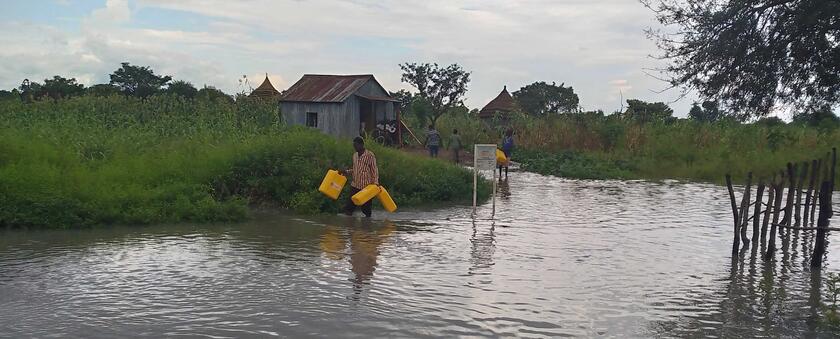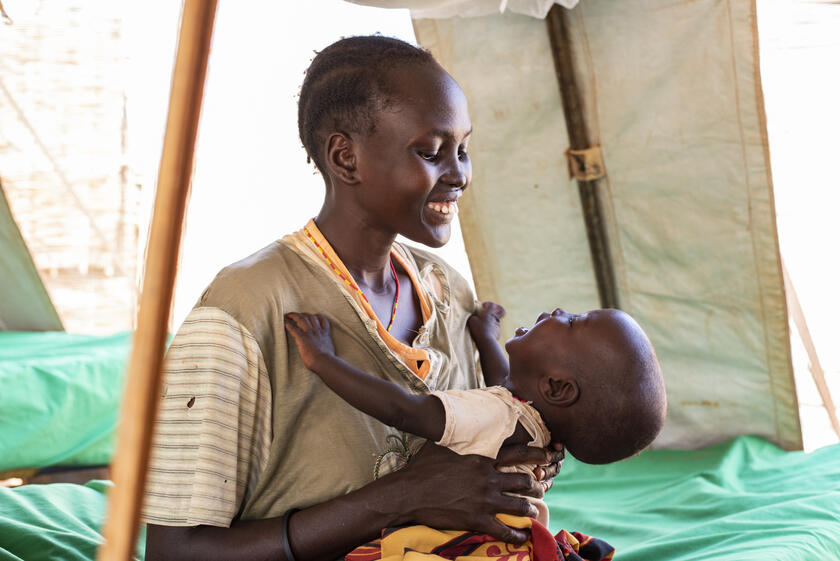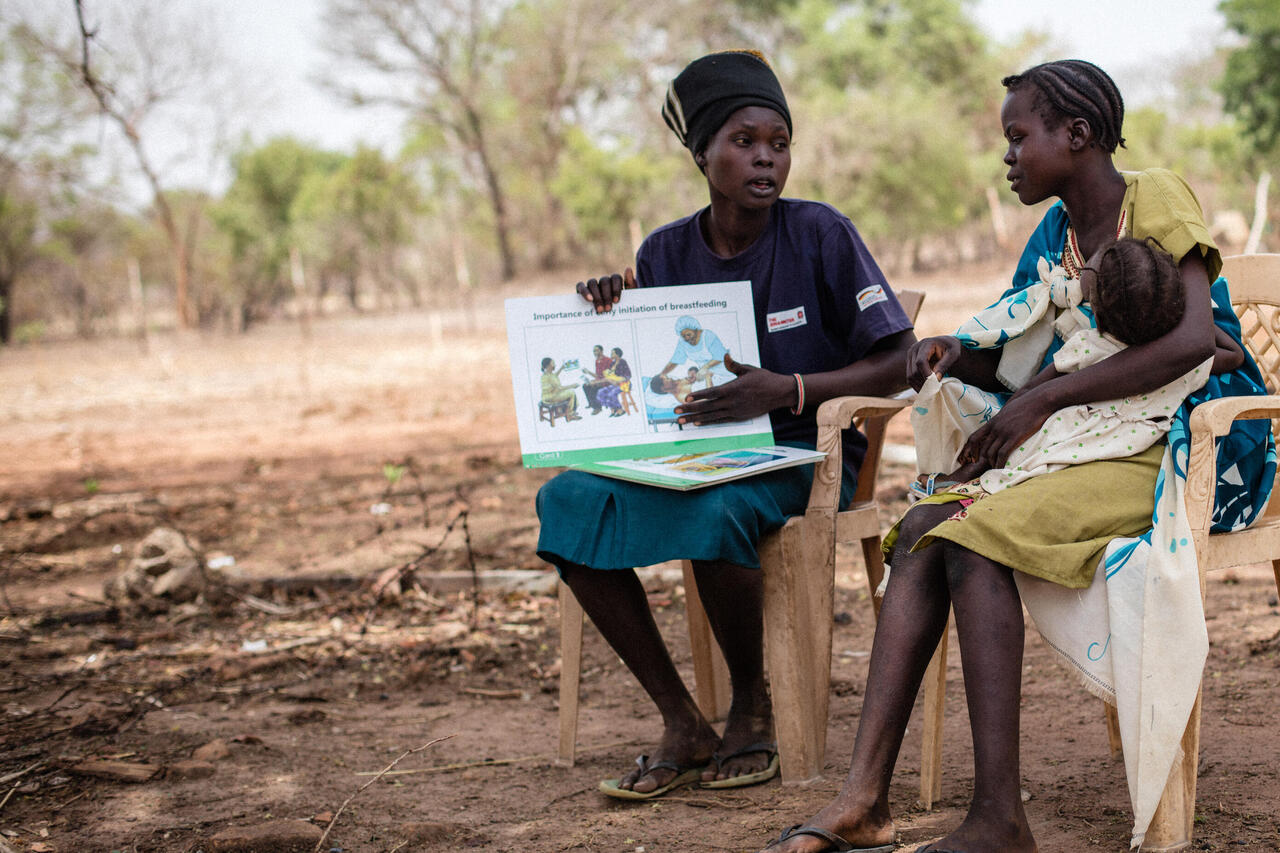South Sudan: Floods lead to widespread hunger
Berlin, 04 November 2021
Since May this year, 623,000 people in eight provinces in South Sudan have been affected by severe flooding. In more than two-thirds of the affected counties, nutrition is severely compromised. Schools, houses, gardens, health facilities and water sources have been flooded, affecting people's basic needs and humanitarian access. Johanniter continues to provide health services and distribute jerry cans.
Johanniter has been conducting assessments in affected areas of Western Bahr el Ghazal province and continue its support to the affected people whose homes had been destroyed by the floods. In six village communities of Jur River district alone, more than 13,000 people sought shelter in temporary camps on higher ground. "Fortunately, there have been no more heavy rains in the last few days and the floods is now subsiding in the districts of Jur River and Wau," reports Janvier Bahati, responsible for Johanniter programmes in South Sudan. "So far, no organisation or government has been able to help in terms of WASH, food or shelter. Johanniter has been the only one to continue its existing services to provide medical care to the people."
Johanniter distribute jerry cans, people need support for nutrition and shelter

The Johanniter team also distributed 524 jerry cans to 215 families to ensure access to clean water. However, other humanitarian supplies such as water purification tablets are urgently needed. "When people go back to their home villages, they also need tents and plastic sheets because their huts have collapsed," says Janvier. People also need to be provided with food as their supplies have been destroyed by the floods. 64,000 gardens have been devastated by the waters, according to the assessment team. "An increased malaria rate is also to be expected due to the stagnant water," Janvier fears. Johanniter facilities have already been stocked with malaria medication. Food supplements have been provided for a growing number of malnourished people.
60 per cent of people in South Sudan at risk of hunger

Johanniter is active in South Sudan in the provinces of Western Bahr el Ghazal and recently in Eastern Ecuatoria, providing health care for hundreds of thousands of people in a stabilisation centre, two primary health care centers and more than 100 sites for malnourished children under the age of five and women. Around 7.2 million people, about 60 percent of the population of South Sudan, are at risk of hunger, according to the United Nations. This is due to conflicts between different militia groups and constant displacement. The recent floods are making the situation much worse. "The number of malnourished and sick children in our stabilisation centre in Wau has grown. We fear that the situation will worsen in the coming months during the sowing period," says Janvier.
Treat and Prevent Malnutrition
In all our projects in the health field, at Johanniter we are committed to measures that prevent acute and chronic malnutrition and undernourishment. The focus is primarily on the phase from the beginning of pregnancy to the second year of a child’s life, which is crucial for the child’s development.
